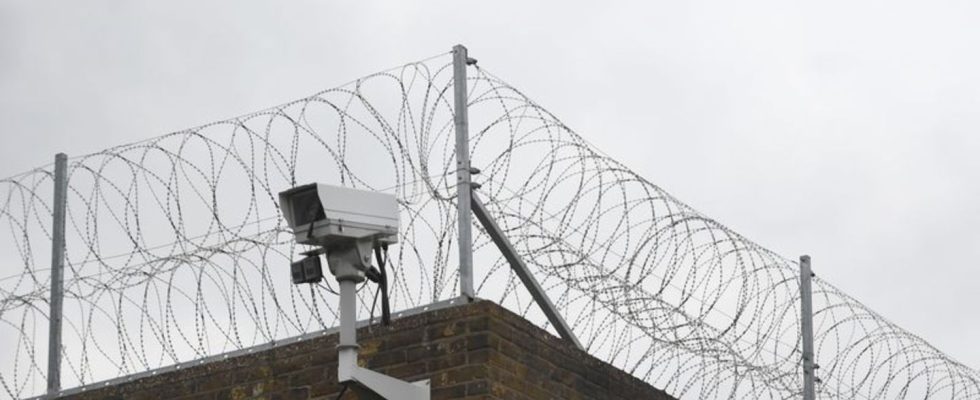crime
Reform against overcrowded prisons? England’s justice system in crisis
Not only are more people being sentenced to prison in the UK, they are also receiving longer prison sentences. photo
© Victoria Jones/PA/dpa
Because of stricter requirements, more and more perpetrators in England are being sentenced to prison. But the prisons are already overcrowded, and the conditions with drugs and gang violence are sometimes considered inhumane.
557 places are still available. Or to put it another way: The 120 prisons in England and Wales are at the attack. It is “inevitable” that there will no longer be enough cells in the near future, the Prison Governors Association told the Independent newspaper. And the “Times” reported that courts had been instructed to postpone foreseeable convictions if possible.
There are currently 88,225 people in custody in England and Wales – with a capacity of 88,782. That’s more than ever. According to the World Prison Brief website, there are 146 prisoners per 100,000 people. For comparison: at the end of 2022, 67 people per 100,000 inhabitants were in prison in Germany. And in England there are likely to be even more. The government itself estimates that up to 106,300 people could be incarcerated in March 2027.
More and longer prison sentences
The rising numbers in Great Britain are the result of the conservative government’s tough “law and order” policy, as experts emphasize. Security State Secretary Tom Tugendhat spoke of a “wave of prosecutions”. Not only are more people being sentenced to prison, they are also receiving longer prison sentences. Months ago, Nick Hardwick from London’s Royal Holloway University warned: “The taps are fully turned on and the drains are blocked.”
Justice Minister Alex Chalk now faces the difficult task of maintaining conservative ideas of a punitive justice system while at the same time relieving pressure on prisons. There are around 65,000 procedures outstanding. In June, 15,000 defendants were in custody awaiting trial, compared to 9,500 in 2019. The backlog largely stems from the pandemic, and a lawyers’ strike caused the numbers to skyrocket.
No leniency for rapists
Minister Chalk put a stop to reports that sentences against rapists could also be postponed because of overcrowding. He will ensure that such perpetrators spend their entire sentence behind bars. “A sentence of 15 years in prison will also mean 15 years in prison,” emphasized Chalk.
At first it sounds like even more pressure on the prisons. But Chalk also clearly announced relief. To this end, he is presenting a whole series of initiatives to parliament on Monday that could be enshrined in law in a short space of time.
For example, the special rule that allows convicted foreigners to be released early and from which former German tennis star Boris Becker also benefited after his sentence to two and a half years in prison is to be expanded. “Foreign criminals need to be punished, but we can’t allow some to sit in prison and cost the taxpayer £47,000 a year instead of being deported,” Chalk said. There are currently around 10,500 foreigners in English and Welsh prisons.
Social work for petty criminals
Further ideas: Detention places could be rented abroad. Petty criminals should be sentenced to social work instead of prison – cleaning up communities or removing graffiti. Recidivism among those who spend less than a year in prison is more than 50 percent, Chalk wrote in a guest article for the Telegraph.
“Too often, offenders routinely return to crime as soon as they leave the prison gate.” The short period of time is not enough to rehabilitate her, but it does alienate her from family and work. The Minister of Justice, whose Conservative Party is moving increasingly to the right, sounds surprisingly liberal.

